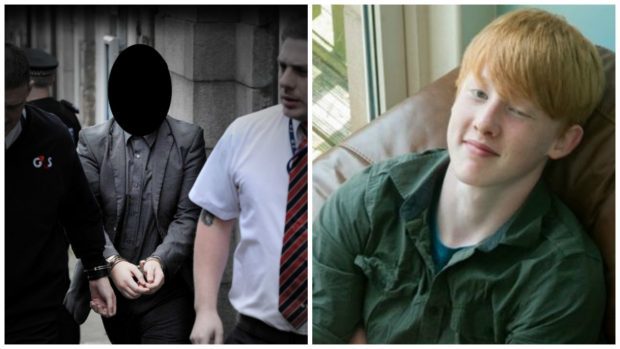Authorities have outlined their six-point plan for the inquiry into the death of Bailey Gwynne.
Details of the multi-agency plan for the inquiry were outlined this evening – almost six months after the schoolboy was killed in Cults Academy.
The review will be chaired by investigator Andrew Lowe, the independent chairman of child and adult protection in Renfrewshire and involve Aberdeen City Council, NHS Grampian and Police Scotland.
The investigation will compile a report for release by September, which will aim to answer a number of questions in regards to the tragic death of Bailey Gwynne who died after being stabbed in the heart last October.
Over the course of his investigation, Mr Lowe will have access to any case files and documents he deems necessary from the local authority, police, NHS Grampian and the Scottish Children’s Reporter Administration.
Mr Lowe’s team will investigate the relationship between Bailey and his killer, develop a detailed timeline of the lead-up to Bailey’s death, and determine if the educational, pastoral, health a social care services that were provided were suitable.
The investigation will also seek to find out if there are any lessons that can be learned from the case, and if necessary identify changes and developments needed within the current youth justice system in Aberdeen.
The report, when published and shared with the Scottish Government, will then determine if the outcome of the investigation will hold implications for Scotland as a whole.
In detail: The inquiry aims
- To establish the relationship between Child A and B prior to the stabbing incident together with any relevant circumstances;
- To develop a detailed timeline showing the statutory partners historical involvement with Child A, and to review information sharing between agencies;
- To review and analyse whether the educational, pastoral, health and social care services provided were proportionate to the assessment of risk, in line with recognised good practice and compliant with statutory partners’ own policies, professional frameworks and legislation;
- To establish what lessons can be learned from the case about the way in which local practitioners and organisations work individually and together to safeguard and promote the welfare of children;
- To identify any necessary changes and developments needed within the current youth justice system operating within Aberdeen City and that the report, when published will be shared with the Scottish Government , who would then determine if there were wider issues for the whole of Scotland;
- To produce a report and recommendations for consideration by the Chief Officers Group, with a view to publication by all three statutory bodies (Aberdeen City Council, NHS Grampian and Police Scotland).
